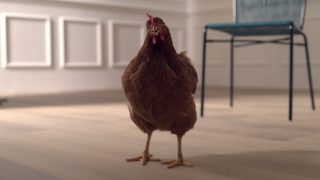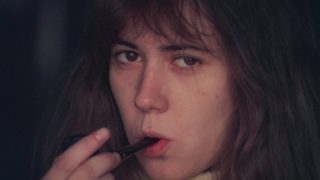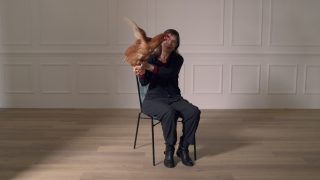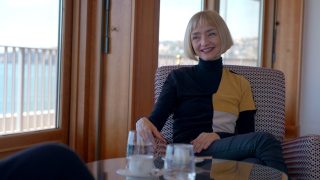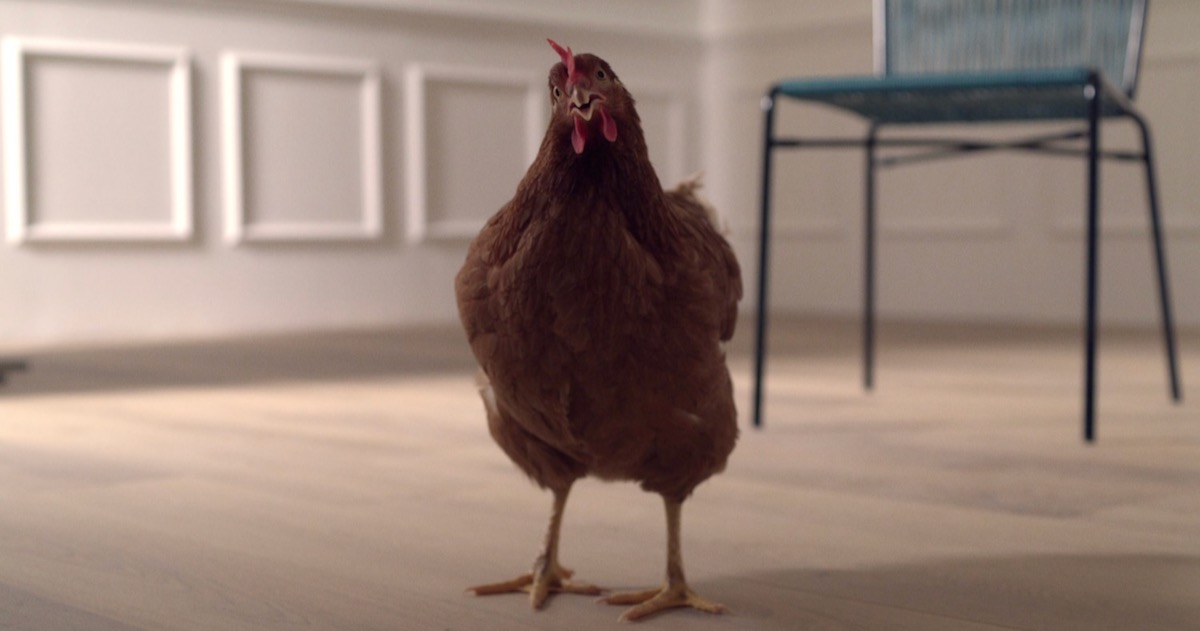
Venetian Nights 2024
L’OCCHIO DELLA GALLINATHE EYE OF THE HEN
Press, Industry
V.O. IT sub EN
Followed by Q&A
Reservation required on giornatedegliautori.com
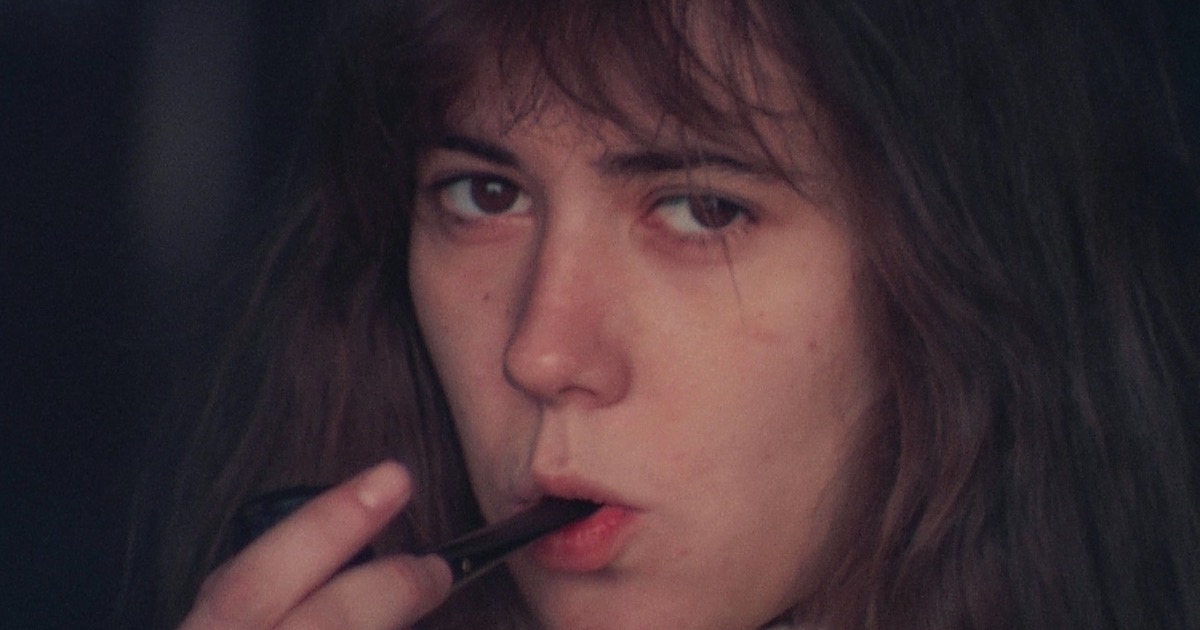
cinematography
Cesare Accetta
editing
Elisabetta Giannini
music
Daniele Sepe
sound
Simone Costantino
Simona Puzone
with
Antonietta De Lillo
Maria De Medeiros
Carolina De Lillo Magliulo
Elisabetta Giannini
Alice Mariani
Marcello Garofalo
Luca Musella
Adele Pandolfi
producer
Antonietta De Lillo
production
marechiarofilm
with the support of
MiC – Direzione Generale Cinema e Audiovisivo
Film Commission Regione Campania
Italian distribution
marechiarofilm
info@marechiarofilm.it
www.marechiarofilm.it
Italian press office
Reggi&Spizzichino Communication
info@reggiespizzichino.com
www.reggiespizzichino.com
The Eye of the Hen is a story of violence and isolation without precedent in the Italian film industry. After twenty years as a filmmaker, with her best film released to critical acclaim and by some deemed a masterpiece that would cement her reputation with mainstream audiences as well, Antonietta De Lillo suffered an injustice that stopped her career in its tracks and relegated her to the backwaters of the industry, where she would be barred from making another feature film. Taking the form of a self-portrait, the film freely revisits the life and career of its subject, nearly forty years after her first film. The irony of her story is reflected in the overturning of our expectations when we see how the eye of a hen works: for those who didn’t know, it closes ‘upside-down’, from bottom to top. By the same token, the filmmaker herself, shut out of the industry, stubbornly swims against the tide, her struggle a testament to the cultural and artistic virtues of cinema, which she also shows to be a healing tool and an antidote to an unwarranted isolation.

2024 L’occhio della Gallina
2021 Fulci Talks (doc)
2017 Il signor Rotpeter (medium-length)
2015 Oggi insieme, domani anche (participated film)
2014 Let’s Go (doc)
2013 La pazza della porta accanto – Conversazione con Alda Merini (doc)
2011 Il pranzo di Natale (participated film)
2008 Articolo 20 (in All Human Rights for All)
2004 Il resto di niente
2002 Pianeta Tonino (doc)
2001 Non è giusto
2000 Il faro (short, doc)
1999 ‘O solemio (doc)
1999 ‘O cinema (short)
1997 Maruzzella (in I Vesuviani)
1997 Saharawi, voci distanti dal mare (doc, directed with Jacopo Quadri and Patrizio Esposito)
1997 Hispaniola (short, doc)
1997 Operai (doc)
1996 Viento ‘e terra (doc)
1995 I racconti di Vittoria
1995 Ogni sedia ha il suo rumore (short, doc)
1994 La notte americana del dr. Fulci (short, doc)
1993 Promessi sposi (short, doc)
1992 Angelo Novi, fotografo di scena (short, doc)
1990 Matilda (directed with Giorgio Magliulo)
1985 Una casa in bilico (directed with Giorgio Magliulo)
«The Eye of the Hen feeds on the emotions I felt over finding myself on the other side of the camera for the first time in my career. The story swings between past memories and the present, reality and imagination, which is why I chose a hybrid style, part fiction, part documentary. This self-portrait in the form of a film lets me place my emotions up front, even ahead of the events that shaped the last twenty years of my career, as violent and unique, on the film scene, as they were. What’s so special about the film is its reconstruction of the key phases of a lengthy legal battle that unfolded in and outside of the courtroom, on the one hand; and on the other, the power of a true story, with no ‘The End’: it’s a work in progress, with everything still happening and anything still could, all right in front of the viewers’ eyes». (Antonietta De Lillo)
In 1985, Antonietta De Lillo co-directed her first film with Giorgio Magliulo, Una casa in bilico, nominated for David di Donatello and Silver Ribbons awards, and winner of a promotional Silver Ribbon. She went on to direct Matilda, Racconti di Vittoria, I Vesuviani, and Non è giusto, as well as numerous documentaries honored at festivals in Italy and abroad. In 2004, her film Il resto di niente was a special event at the Venice Film Festival and also received an array of accolades. In 2011, with marechiarofilm, De Lillo made the first participated film in Italy, then a second in 2016, which earned her a Special Silver Ribbon for her innovative approach to documentary filmmaking. More joint efforts with marechiarofilm include La pazza della porta accanto, Let’s Go, and Il signor Rotpeter; this last premiered at Venice and earned Marina Confalone a Special Silver Ribbon. 2021 saw the release of Fulci Talks, while in 2022, De Lillo launched into her third participated film, L’uomo e la bestia.

